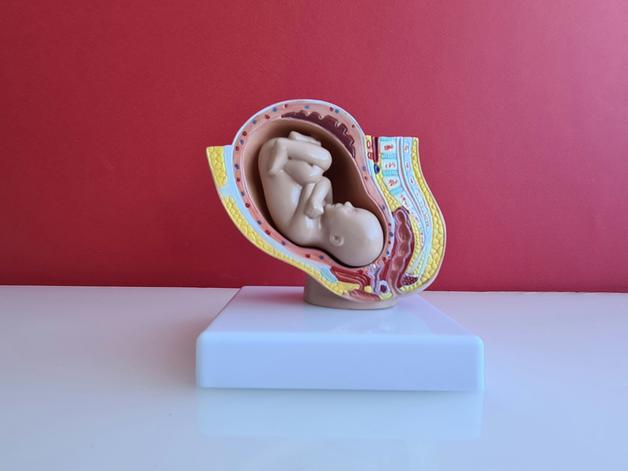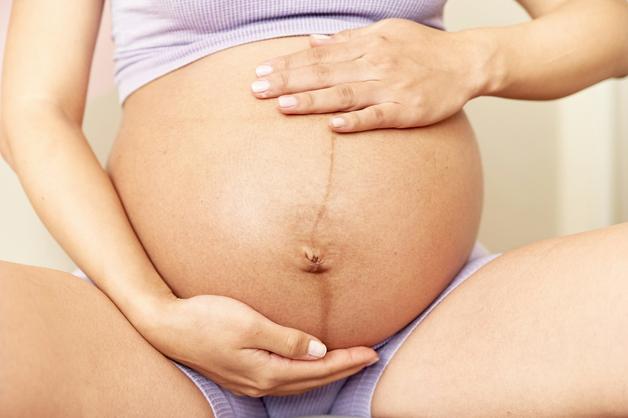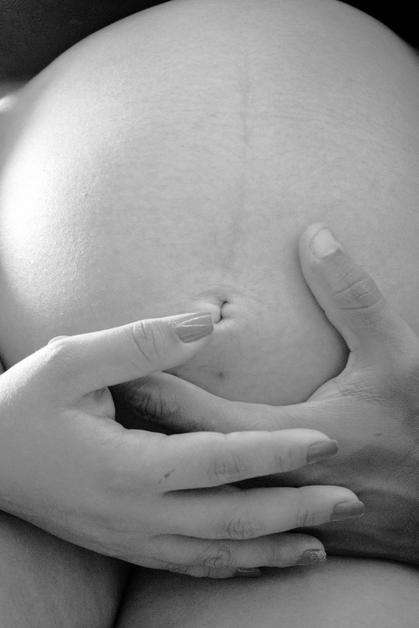Denial of pregnancy—a phrase that sounds almost surreal, yet it speaks to a reality both medically intriguing and emotionally intense. Ever caught yourself wondering how someone might be entirely unaware they’re pregnant, even as the days and months roll on? For many parents, just hearing stories about unexplained abdominal symptoms, missed signs, or even surprise deliveries can spark anxiety and a torrent of questions. What if this could happen in one’s own family? Or to someone close? The phenomenon of denial of pregnancy weaves together biology, psychology, and social circumstances, painting a picture that challenges everyday expectations about reproduction and motherhood. Here, the journey will unravel the different shades of this reality—what it truly means, how it hides in plain sight, and the path to support and care when shock turns to acceptance.
Denial of pregnancy: understanding the puzzle
Defining denial of pregnancy
What truly defines denial of pregnancy? This term refers to a psychological state, sometimes called cryptic pregnancy, wherein a woman is simply unaware of her ongoing pregnancy. It isn’t a story of deliberate concealment (that’s concealed pregnancy—a different topic altogether), but rather a situation where the signals of pregnancy, from growing abdomen to breast tenderness or even fetal movement, are either absent, too subtle, or misattributed. Instead, the mind shields itself—often as a protective response—from realities too distressing, unfamiliar, or unwelcome.
Sometimes, the consciousness makes space for denial not as a conscious choice but as an automatic defense, especially when the emotional load of pregnancy feels overwhelming. Cases stretch across ages, backgrounds, marital status, and body types. Social isolation, adolescence, or even prior pregnancy experience doesn’t offer immunity—any woman of childbearing age can face denial of pregnancy.
Prevalence and the numbers behind the phenomenon
How frequent is this condition that seems so out of the ordinary? Consider this: about 1 in 475 pregnancies reach 20 weeks without the mother’s awareness. Around 1 in 2,500 may continue up to childbirth entirely unnoticed. Each year, hundreds of such cases are reported globally. These numbers, while unusual, highlight why clinicians recommend keeping denial of pregnancy on the radar, even when it sounds highly improbable.
Different faces of denial of pregnancy
Degrees of denial: partial and total forms
Denial of pregnancy is not a single, uniform experience. Instead, it unravels as:
- Partial denial: Discovery comes late—sometimes in the last trimester, maybe in the eighth or ninth month, but before labor. Here, pregnancy awareness dawns gradually, often with the appearance of more obvious physical shifts or concerning symptoms.
- Total denial: The shock is as sudden as it gets—the moment labor begins. Until then, the emotional and cognitive recognition of pregnancy is simply absent.
Psychotic versus non-psychotic denial
Delving deeper, denial of pregnancy can surface in different psychological contexts:
- Psychotic denial: Extremely rare, linked to psychiatric disorders such as schizophrenia, where the break from reality is profound, sometimes involving fixed false beliefs (delusions) about one’s body. Medical intervention becomes urgent.
- Non-psychotic denial: Far more common, this variant draws from non-delusional psychological defense mechanisms. Some women may register the facts in their mind, but emotionally, the connection is lost—what specialists call affective denial, where the gap between rational acceptance and emotional preparedness can be significant.
Denial versus concealment—and pseudocyesis
Not all pregnancy “secrets” share the same roots. Concealed pregnancy involves a conscious decision to keep the condition hidden; denial of pregnancy is the genuine absence of realisation, quite often baffling both the mother and her close circle. Also worth noting—the mirror image called pseudocyesis (false pregnancy), where a woman is convinced she’s pregnant despite medical evidence to the contrary.
Roots and risk factors: why does denial of pregnancy happen?
Psychological explanations
Denial of pregnancy springs from a network of defense mechanisms—those mental strategies that buffer the psyche from overwhelming thoughts or feelings. Dissociation is a prime example, where awareness of bodily changes gets “switched off” in self-preservation. Past trauma, fear of social stigma, intense anxiety about parenthood, or ambivalent feelings about motherhood can all act as triggers, though rarely in isolation.
Is it just “not thinking about it enough”? Absolutely not. Even persistent worries or curiosity about pregnancy count as active awareness and make denial far less likely.
Social and cultural threads
Social norms, family tensions, marginalization, and even poverty add further complexity. The experience isn’t only shaped by the individual psyche but also by pressures—spoken and unspoken—swirling in families and communities. The fear of exclusion, gossip, or rejection makes the mind sometimes take an unexpected path.
Physical and hormonal contributors
Some physiological quirks can help cloak a pregnancy: minimal abdominal growth, continued bleeding that resembles menstruation, or even the uterus growing vertically rather than outward, thus making changes almost invisible. Hormonal fluctuations or continued use of contraception may also blur the typical signals of pregnancy. However, the psychological and social factors often weigh heavier than any physical anomaly.
The development of the baby in denial of pregnancy
You might wonder—how does the baby fare if the mother is completely unaware? Medically, the fetus usually develops as in any pregnancy, though the lack of abdominal bulge sometimes puzzles clinicians. The uterus may align vertically along the spine, the baby curling up in a compact position. When reality sets in and the denial lifts, rapid physical changes—sometimes within hours—transform the visible appearance. Scientifically, this remains a source of astonishment.
Recognising denial of pregnancy: clinical signs and clues
Absence of typical pregnancy symptoms
Often, denial of pregnancy walks hand in hand with a lack of classic signs, such as:
- No conspicuous weight gain or abdominal swelling
- Little to no breast enlargement, tenderness, or colostrum
- Ongoing “periods” (though usually actually irregular uterine bleeding)
- No persistent nausea or fatigue that most expecting mothers report
Physical symptoms might be attributed to unrelated causes—indigestion, stress, or temporary changes—delaying detection.
Behavioral and relational indicators
The affected woman often displays no preparation for motherhood—no changes in wardrobe, avoidance of pregnancy-related topics, sometimes even refusing to engage in child-oriented planning. Partners and family members are often equally unaware, as changes are either too subtle or rationalised away.
Diagnostic challenges
From a clinical perspective, denial of pregnancy isn’t always obvious. A woman in denial may seek help only for vague discomfort, unexpected pain, or unrelated symptoms. Medical professionals need to maintain a watchful eye—sometimes, only a routine pregnancy test reveals the truth.
Getting to a diagnosis: early detection and care
Medical confirmation
Regardless of symptom absence, a pregnancy test remains positive in all cases of denial of pregnancy. Hormone levels (measured in blood or urine) and an ultrasound scan are the go-to tools when the suspicion arises. Once awareness emerges, physical changes often become apparent at lightning speed.
Family and healthcare pathways
Partners and relatives, typically as surprised as the mother, must also adapt rapidly. A coordinated response—melding medical, psychiatric, and social support—can ease the transition and provide the stability needed for both mother and infant.
Barriers along the way
Ongoing contraception, persistent menstrual-like bleeding, or even unconscious agreement within the family can delay intervention. Sometimes, denial of pregnancy is missed entirely until labor starts.
Consequences for mother and baby
Maternal health concerns
Absence of prenatal care is a hallmark of denial of pregnancy, elevating the risks for conditions like preeclampsia, infection, or sudden, unassisted labor. The emotional plunge from unawareness to maternity can invite shock, postpartum depression, or traumatic stress.
Impact on the newborn
Newborns from denied pregnancies face possible trouble ahead—premature birth, low birth weight, delayed growth, and elevated need for neonatal care. The shock of the discovery can ripple out to influence the mother-child bond and the wider family dynamic.
Parenting and bonding
Missing out on prenatal emotional preparation can make bonding an uphill endeavour—guilt, self-doubt, even shame may flood in. Thankfully, with compassionate support, many mothers find surprising strength and go on to build a nurturing connection, often striving to “catch up” on the months they feel they missed.
The right support: management and follow-up
Medical and psychological interventions
As soon as denial of pregnancy is identified, a combined approach—medical follow-up, psychological counselling, and when needed, psychiatric care—forms the backbone of positive recovery. Psychotherapy offers space to process complex emotions and build new strategies for parenting.
Family and community support
Evaluating day-to-day functioning and enlisting close relatives, friends, or community networks can make a world of difference. Strengthening social ties buffers stress and sets the tone for a stable, loving environment for both mother and newborn.
Ethical balance and child well-being
Mother’s autonomy remains essential, barring moments when mental health threatens her ability to care or make decisions. Legal or ethical frameworks, when they enter, should always favour support, empathy, and dignity.
Navigating legal and ethical considerations
Consent and decision-making
Mothers retain medical decision-making rights if they demonstrate capacity—even in the aftermath of denial. Assessing capacity—especially when psychiatric conditions are in play—is a delicate process needing sensitivity and expertise.
Complexities in law and ethics
Public policies concerning mental health and child protection may come into play, though they are guided by a focus on respect, informed consent, and well-documented, transparent communication between medical teams and families.
The wider social scene
Family dynamics and adaptation
Denial of pregnancy can fracture or reshape relationships, particularly at the moment of discovery. Time, open communication, and professional mediation (when needed) can help families rebuild trust and mutual support.
Stigma and societal perception
Societal attitudes, often steeped in judgment or disbelief, can amplify the loneliness and shame of those coping with denial of pregnancy. Negative media coverage doesn’t help, sometimes pushing parents even further into isolation.
Community organisations and resources
Social workers, mental health practitioners, and parent groups are often lifelines, offering confidential advice, emotional comfort, and practical solutions for both mother and baby.
The cultural dimension
Beliefs about motherhood, family honour, and pregnancy shape both how denial of pregnancy presents and how it is supported—or not—by those around.
When news breaks: illustrative cases
Unexpected stories
Stories circulate of women who discovered labor without prior knowledge, or whose families intervened just in time. Others highlight medical or judicial interventions, sometimes generating controversy.
Public debates and medical discourse
Should denial of pregnancy be treated as a mental health issue, a medical anomaly, or a social concern? The debate shapes pathways of care and informs recommendations for policy and clinical training.
Legal interventions in action
Occasionally, emergencies require legal involvement—child protection services, guardianship, or temporary foster care, albeit always with the intention of preserving family unity wherever possible.
Prevention and public awareness
The role of healthcare professionals
Regular training for doctors, nurses, and paramedics focuses on screening for pregnancy—even when symptoms are minimal or absent—whenever a woman of reproductive age presents with unexplained complaints.
Education and early intervention
Awareness-raising about denial of pregnancy and mental health—across schools, community groups, and families—can break the silence that helps denial hide. Open dialogue matters.
Creating supportive environments
Channelling empathy over judgment and cultivating safe spaces for discussion empower women to seek help early and receive what they need, when they need it.
Key takeaways
- Denial of pregnancy can arise suddenly or build slowly, and is shaped by a mix of psychological, physical, and social influences.
- It affects a broad spectrum of women, regardless of age, background, or family status.
- Atypical physical signs and emotional withdrawal often mask the condition, causing late or missed diagnosis.
- The absence of prenatal care elevates medical and psychological risks for both mother and newborn.
- Recovery is possible, with many women and families adapting and thriving after initial shock.
- Multidisciplinary care—drawing from obstetric, psychiatric, and social expertise—remains gold standard.
- Stigma isn’t helpful; empathy and prompt support enable better health and family outcomes.
- For ongoing guidance and tailored health tools, parents can download the application Heloa for free health questionnaires and personalised advice for their children.
Questions Parents Ask
Can denial of pregnancy occur even if someone has regular periods or is using contraception?
Yes—denial of pregnancy sometimes persists despite ongoing bleeding that resembles periods, or consistent use of contraception. The continued presence of “periods” or trusting a birth control method might reinforce the belief that pregnancy isn’t possible. The body can send confusing signals, but when in doubt, a quick pregnancy test can clarify things without much effort.
How long can denial of pregnancy last, and when is it usually discovered?
Denial of pregnancy ranges from weeks to the entire term. Some women learn of their pregnancy only at labour, while others realise late in gestation as physical changes finally become undeniable. Although the shock is intense, swift access to medical and emotional support makes a real difference for well-being.
Are there any legal implications for denial of pregnancy?
Sometimes, legal attention becomes necessary if the mother’s health or newborn’s welfare is in question—most often in cases involving severe psychological distress or emerging mental health issues. Hospitals and social services work as a team, focusing on empathy and respectful guidance throughout any evaluation. Steps are taken with dignity, prioritising the safety and adjustment of both mother and child at every turn.









